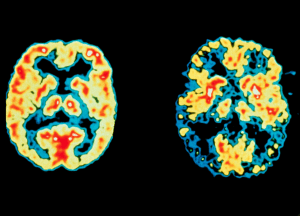Roche’s MabThera successor shows phase II promise
pharmafile | December 6, 2010 | News story | Research and Development, Sales and Marketing | GA101, Genentech, GlycArt, MabThera, Roche, blood cancer, chronic lymphocytic leukaemia
The cancer drug Roche is developing as a second-generation successor to its blockbuster MabThera has shown promising results in a phase II trial.
Presented at the American Society of Hematology, the data demonstrated efficacy in hard-to-treat patients with the blood cancer non-Hodgkin’s lymphoma (NHL).
Roche announced two years ago that it would bring investigational compound GA101, developed by its wholly-owned biotech company GlycArt, to market.
It is the first type II, glyco-engineered anti-CD20 monoclonal antibody to enter clinical trials in NHL and chronic lymphocytic leukaemia (CLL).
GA101 is being investigated in a number of phase III studies, including head-to-head trials against MabThera.
It has been designed with the sole aim of destroying cancerous B-cells, by either activating other immune cells to attack the unwanted cells or by killing them directly.
Glyco-engineering is designed to make a molecule more potent, active in the body for longer and to cause fewer unwanted side-effects.
In the first phase II study in aggressive NHL, patients had received three prior therapies and 63% had not responded to – or had disease progression within six months of – MabThera.
Nearly a third responded to treatment with GA101 (11 of 40 patients, 24% in the 400mg cohort, 32% in the 1600/800mg cohort).
For patients no longer responding to MabThera, the response rate was 25% in the 1600/800mg cohort.
In the second study, this time in relapsed/refractory indolent NHL, patients had also received three prior treatments and 55% had not responded or their conditioned had worsened with MabThera.
In the overall indolent NHL population, which was heavily pre-treated, 55% of patients responded to treatment with GA101.
Median progression-free survival (PFS) in these cases was 11.3 months in the 1600/800mg cohort, while in the 400mg cohort there was a 17% response rate with six months of median PFS.
For patients no longer responding to MabThera, response rate in the 1600/800mg cohort was 50%.
Hal Barron, chief medical officer at Roche, described the data as “encouraging” and said there would be more “from the extensive GA101 clinical development program in future”.
Adam Hill
Related Content

Roche receives CE Mark for blood test to help rule out Alzheimer’s
Roche has been granted CE Mark approval for its Elecsys pTau181 test, the first in …

ViroCell Biologics and AvenCell Therapeutics partner to accelerate allogeneic CAR-T therapy development
ViroCell Biologics has announced a new manufacturing collaboration with AvenCell Therapeutics to produce a high-yield …

Roche candidate shows early promise for treating haemophilia A
Roche has announced encouraging early results from its phase 1/2 trial of NXT007, an investigational …






